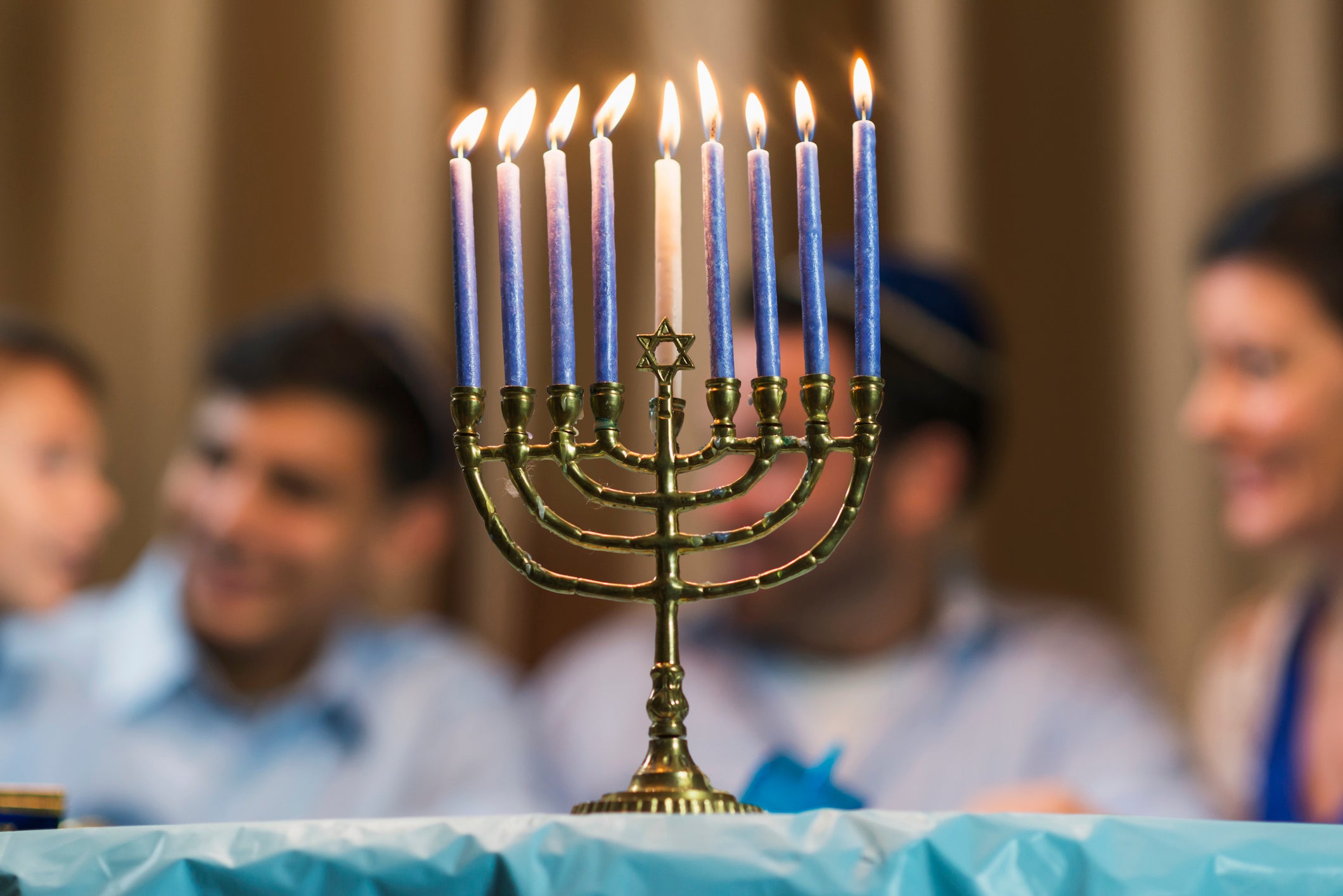Hanukkah 2021: When does the Jewish festival start and what’s the meaning behind it?
Learn all about the story of Hanukkah, the Jewish ‘Festival of Lights’

Despite not being mentioned in the Torah, Hanukkah is one of the most highly anticipated and joyous Jewish festivals of the entire year.
The “Festival of Lights” tells the story of the Maccabees, an army of rebels in Israel who revolted against the Seleucid Greek King Antiochus, who was trying to kill all the Jewish people.
While the exact historical truth of the series of events that led to the destruction of the Temple in Jerusalem is a topic of debate, every year Jews around the world celebrate the victory of the Maccabees over their oppressors and the miracle of the temple’s menorah burning brightly for eight full days.
So when does Hanukkah start, what’s the significance of the festival and how is it celebrated?
Here’s everything you need to know:
When does Hanukkah start?
This year, Hanukkah starts on Sunday 28 November.
The festival is celebrated for a duration of eight days, ending on Monday 6 December.
Unlike Christmas, which has a fixed date in the Gregorian calendar every year, the date of Hanukkah depends on the Hebrew calendar, which is lunisolar.
Hanukkah takes place every year on the 25th day of the month of Kislev in the Hebrew calendar.
The last time Hanukkah overlapped with Christmas was in 2016, when the first night of the festival took place on Christmas Eve.
What’s the significance of the festival?
The story of Hanukkah that Jewish people are taught tells the tale of the Maccabees, who somehow managed to defeat King Antiochus’ mighty troops.
In doing so, they also reclaimed the Temple in Jerusalem, which had been left in a desecrated state.
To celebrate their victory, the Jewish people attempted to carry out a ritual lighting of the seven-pronged menorah, a candelabra, in the temple.
However, they only managed to find enough oil to light the menorah for one day.
Miraculously, the oil somehow lasted for eight days, hence the eight-day duration of the "Festival of Lights".
As the story of Hanukkah took place after the Torah was written, it isn’t specifically mentioned within the holy text.
How is Hanukkah celebrated?
Jewish people commemorate Hanukkah by lighting a menorah, otherwise known as a hanukkiah, every day for eight days.
While the original menorah that was lit in the Temple in Jerusalem had seven prongs, the menorahs typically used nowadays in Jewish homes for Hanukkah have eight, with a ninth prong, called the "shamash", in the middle.
Every night on Hanukkah, the shamash is the first candle on the menorah that’s lit.
The shamash is then used to light each of the other candles, with one candle being lit on the first night of Hanukkah, two on the second and so on.
Jewish people are encouraged to place their menorahs in the front windows of their homes so that others can witness their celebration.
Furthermore, public lightings of menorahs also take place.
The food that’s served during Hanukkah is one of the most long-awaited aspects of the festival.
Potato latkes, sufganiyot (jam-filled doughnuts), gelt (chocolate money) and beef brisket are all eaten in abundance to mark the occasion.
Join our commenting forum
Join thought-provoking conversations, follow other Independent readers and see their replies
Comments
Bookmark popover
Removed from bookmarks